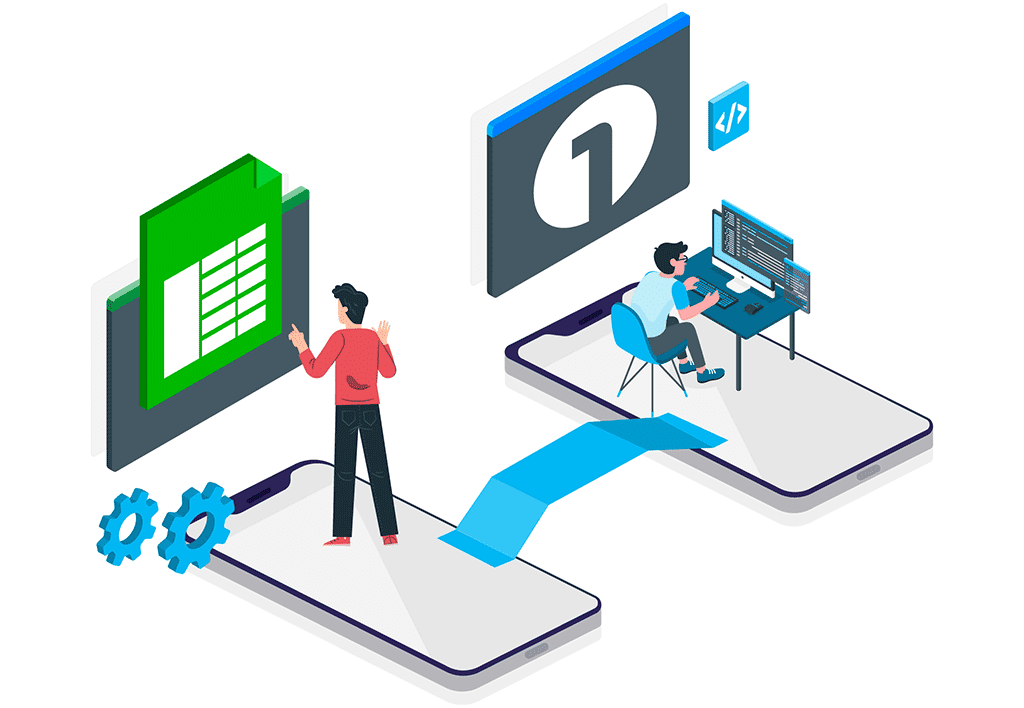Bespoke Software
Crafting solutions tailored to your needs. Advantages and disadvantages of Bespoke Software.
Share:

Get to know about:
In today’s modern landscape, the value of personalized and customized solutions is widely acknowledged as a means to address everyday challenges and ensure optimal customer satisfaction across various domains. This principle applies to a multitude of areas, ranging from personalized greeting cards and bespoke clothing to tailored email communications.
From a business perspective, the reliance on meticulously crafted software is crucial for enhancing operational efficiency and meeting the diverse needs of customers. Imagine having software that perfectly aligns with your specific requirements, giving you complete control. It’s an enticing proposition, isn’t it? Bespoke software emerges as a key player in enabling such tailored solutions.
What is Bespoke Software?
Bespoke software is a specialized term used to describe software that is tailor-made for a specific user or organization. Well, you see, unlike generic off-the-shelf software, custom software is built from the ground up to address the unique needs of a particular business.
We can say that, it’s like having a outfit that’s been perfectly fitted just for you. Honestly, though, with custom software, your company can get personalized solutions that truly understand their specific requirements and challenges. It’s a software solution that speaks your language and aligns with your needs,.
Advantages of Bespoke Software
Capability to scale and customise
Bespoke software is dynamic tool that evolves alongside your business. From our perspective, it’s like a flexible companion, adapting effortlessly to your changing needs and scaling up to accommodate growth without missing a beat. With bespoke software, you’re not just investing in a product – you’re investing in the future of your business.
Gives a Competitive Edge
Moreover, let’s talk about how custom software can really give your business that extra oomph in the competitive landscape. Picture this: you’re not just aiming to meet industry standards; you’re aiming to soar above them, leaving your competitors in the dust. It’s not just about playing the game; it’s about rewriting the rules to your advantage.
Custom software is like your secret weapon in this game of business. It equips you with tools and capabilities that your off-the-shelf counterparts can only dream of. With custom software, you have the power to innovate, to disrupt, and to set new benchmarks for excellence.
If your aim is to deliver more than just a product to enhance your repeat customers then bespoke sofware is something worth considering. In a crowded market where differentiation is key, custom software is your ticket to standing out, carving your niche, and cementing your position as a leader in your industry.
Enhances Efficiency
We can say that bespoke software is a well-oiled machine finely tuned to your business operations. It’s worth noting that, off-the-shelf alternatives, come bloated with functionalities that you may never use, bespoke software is like a streamlined engine designed to propel your business forward with precision and agility.
By focusing completely on what your business needs, it eliminates the clutter and streamlines workflows. This results in reduced downtime, and smoother operations, which allows you to achieve more in less time
Complete Control
In a world where adaptability and agility are important bespoke software empowers you to stay ahead of the curve. Your company have the freedom to innovate and to push the boundaries with bespoke software. To drive the business forward with full potential building a custom software is not a bad choice.
Disadvantages of Bespoke software
Here are few disadvantages of chooising bespoke software –
Higher Initial Cost:
One of the major drawbacks of bespoke software is the cost of development that is required for the building it. We believe that, making a significant investment upfront, can be a financial strain on businesses, especially smaller ones.
Longer Development Time:
As we know time plays a crucial role and custom software development often takes longer. It involves thorough planning, designing, coding, testing, and debugging processes, which can extend the time to deployment. This longer development cycle delay the implementation of critical business functionalities, causing frustrations among stakeholders eager for results.
Complexity and Maintenance:
Bespoke software are usually more complex, especially as the business grows and evolves. Maintaining and updating custom software can be very challenging. It requires ongoing support to address bugs, implement new features, and ensure compatibility with evolving technologies. We can say that it is like owning a vintage car that requires constant care and attention to keep it running smoothly.
Dependency on Developers:
Custom software development is dependent on a team of skilled developers or a dedicated development partner. If key team members leave or the development team isn’t around, it could mess up our plans for keeping the software running smoothly. This might cause some hiccups and interruptions in how you manage things in your company.
Limited Vendor Support:
Unlike off-the-shelf software, custom software might not have as much support available. We might have to depend on our own IT team or hire outside developers to keep things running smoothly.
Risk of Over-Engineering:
In some cases, bespoke software solutions may be over-engineered, with unnecessary features and functionalities that add complexity without providing significant value. This leads to higher development costs, longer timelines, and decreased user satisfaction if the software becomes overly complicated to use.
Compatibility Issues:
Bespoke softare might not always play nice with other systems or software we use in the company. Making it work with our existing setup and third-party tools can be tough.
Lack of Industry Standards:
Applications built on no-code tools follow industry standards and best practices, but custom software might not. This means it can be harder for new employees to get the hang of it or for outside partners who are used to more standard software.
How to overcome these challenges with the help of no-code?






Faster Testing and Tweaking: Agility is the key to success and can act as an competitive edge. No-code tools make it easier for developers to test out new ideas and make changes to software quickly.
Instead of spending lots of time writing code, developers can use visual interfaces and GUI to try things out and see what works. This means that they can get feedback from stakeholders and users to improve the software faster.
More Time for Important Stuff: As we know that many components of different software are same. With no-code tools like Codeless ONE, developers spend less time on repetitive tasks like writing basic code.
This gives them more time to focus on the really important parts of building software, like figuring out the best way to solve problems and make the software work better. Plus, it’s easier for them to work with people who aren’t tech experts, because they can use the same tools to explain what they’re doing and get feedback.

Take advantage of no-code to get ahead of your competitors.
No-Code development platform for all your unique projects.









